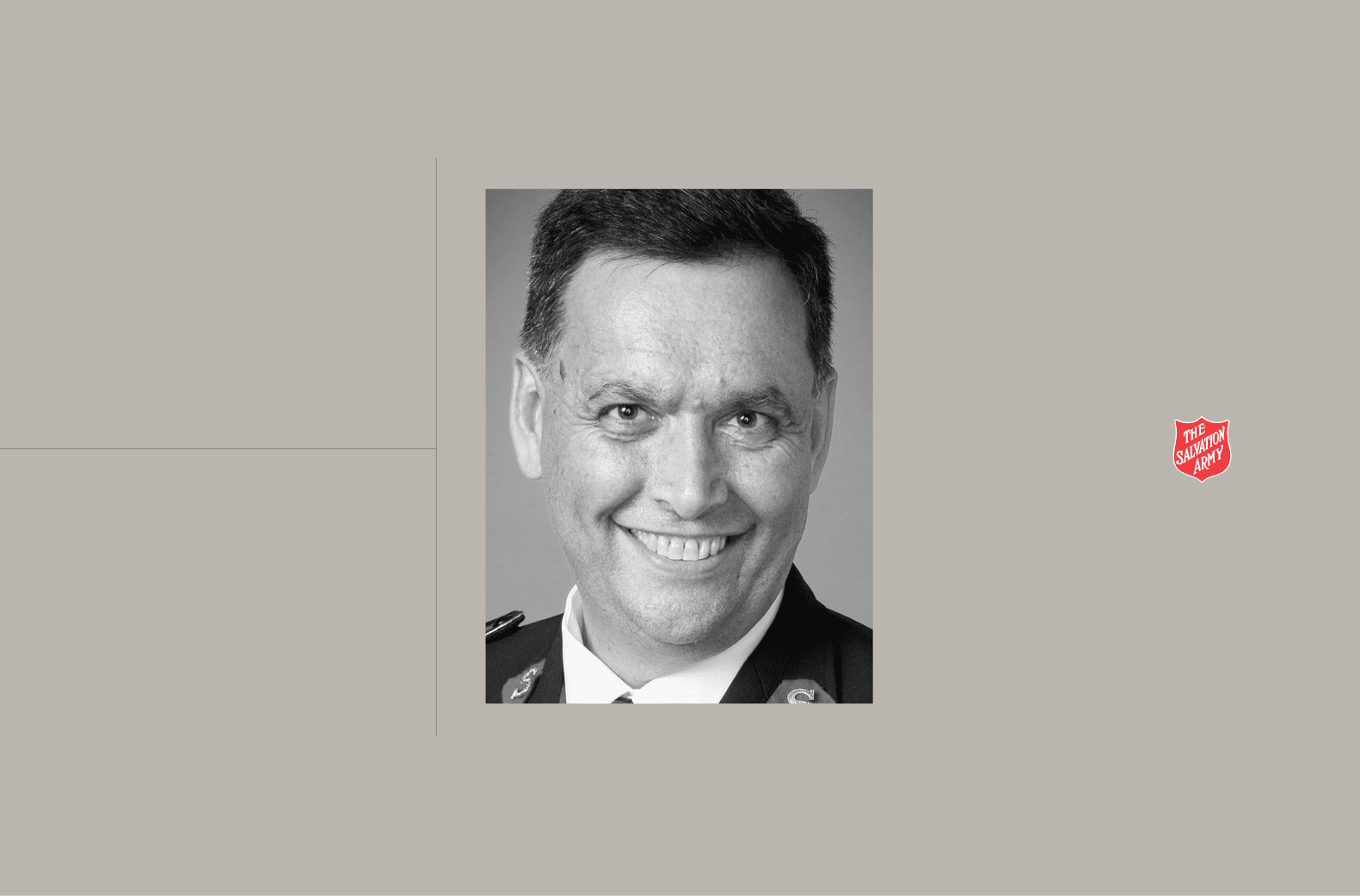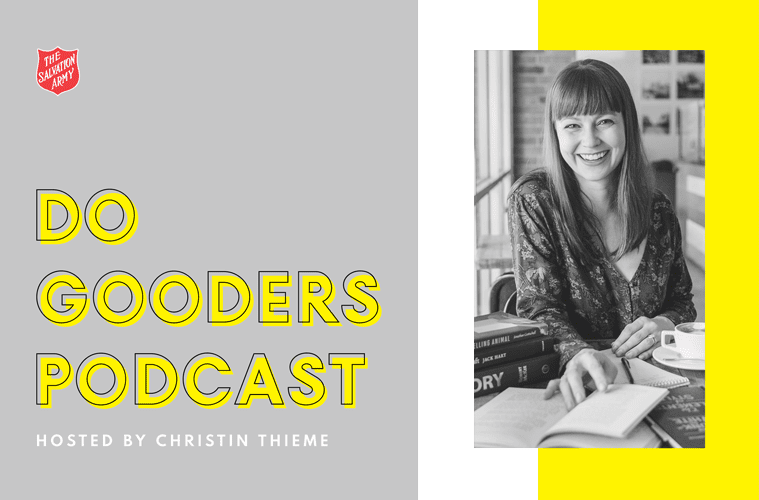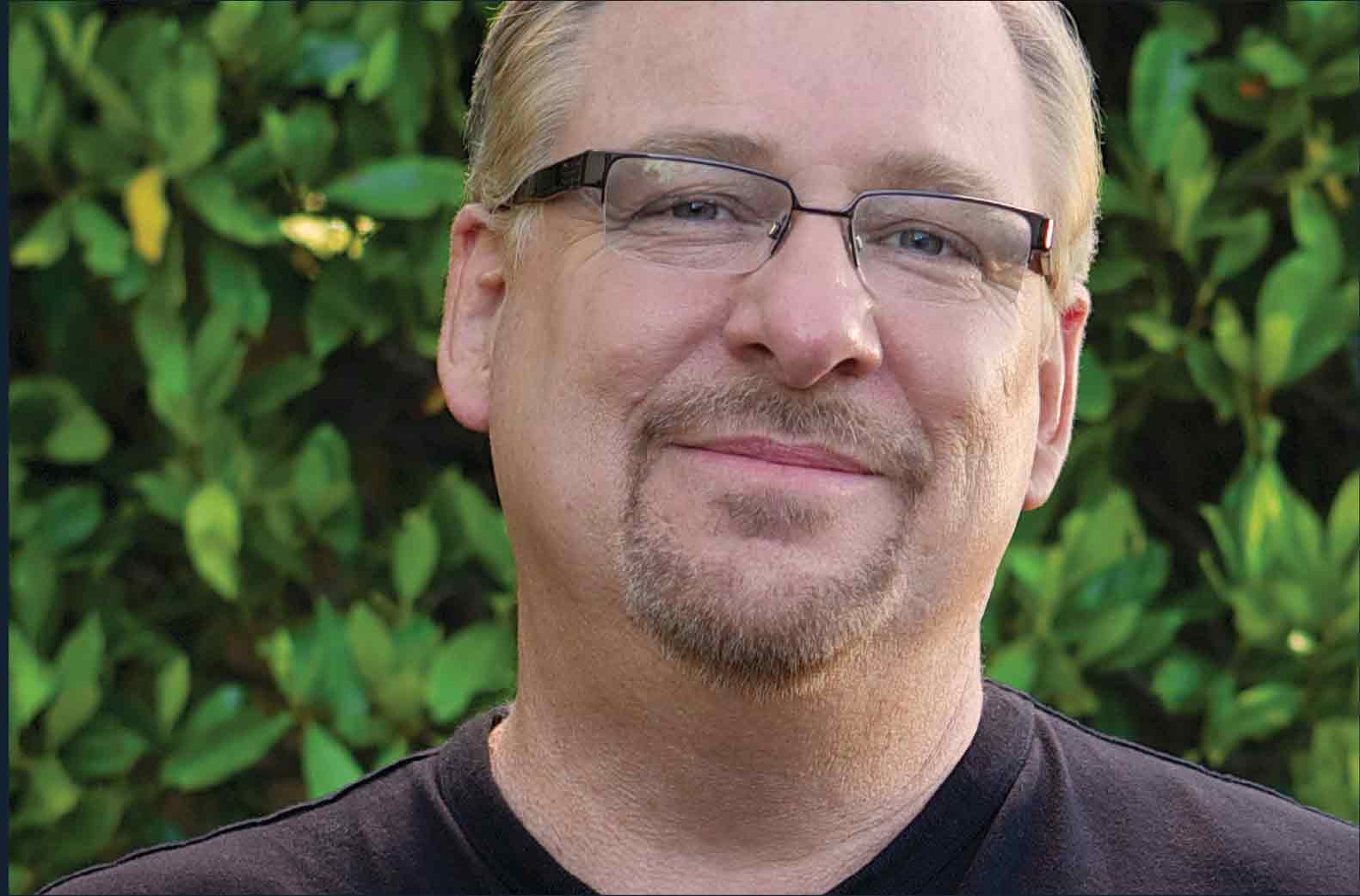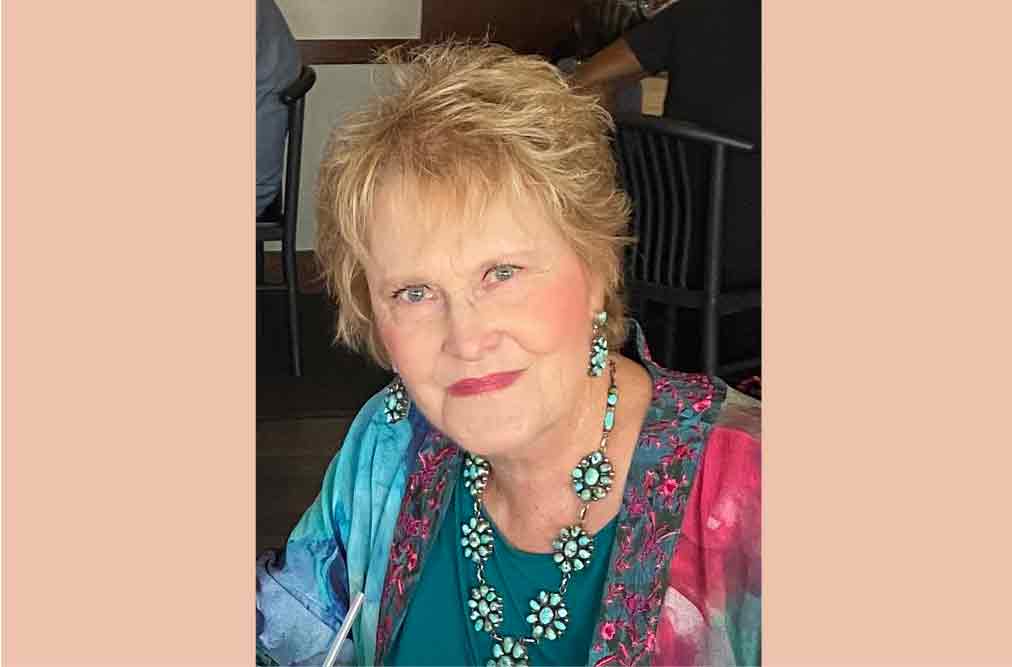Listen to this article
Listen to this article
Loading
Play
Pause
Options
0:00
-:--
1x
Playback Speed- 0.5
- 0.6
- 0.7
- 0.8
- 0.9
- 1
- 1.1
- 1.2
- 1.3
- 1.5
- 2
Audio Language
- English
- French
- German
- Italian
- Spanish
Open text
152: growing hope family-wide with the salvation army. we talk a lot about the salvation army’s fight against hunger, homelessness, against poverty. you might remember back to our series on the pathway of hope, episodes 88-93. in that series, we explored in depth the salvation army’s initiative to break the cycle of crisis and vulnerability for families—the effort to meet immediate needs and have a lasting, intergenerational impact by addressing the root causes of poverty and helping a family find a new path. so what does it look like in action? today, i’m sharing the story of ruth and her family. when ruth left an abusive relationship, she found herself the single mother of six children, and she was struggling. then, she met the salvation army and finally found hope. listen in to hear ruth and her family tell their story. we originally told this story in video so you can also watch it here. listen and subscribe to the do gooders podcast now. below is a transcript of the episode, edited for readability. for more information on the people and ideas in the episode, see the links at the bottom of this post. * * *. naomi: i just remember, like, every now and then, my dad would come in, you know, drunk, angry. the cops would always be called because he was beating my mom. we’d moved from apartment to apartment. i just thought that’s how life was, you know? ruth: i asked him many times to stop drinking. and he would say, “i’m not going to stop drinking, not for you, not even for my children.” the abuse came, the blows came. and i held on for my children. i stayed for 13 years. it took the worst thing to happen before i was able to react and get out of this abusive relationship. what really hurt me was that my children were scared, crying for their dad, because they saw him getting arrested. naomi: life got harder after that. now we didn’t have a dad, we saw my mom less, we would fight more as siblings, if we weren’t already poor, we were more poor now. ruth: the oldest went into depression. several times he tried to take his own life. he spent a lot of time in psychiatric hospitals. naomi also went into a state of depression, but very different from alexis. she started to want to command, to have this voice of control in the house because there was no order at home. i went to my social worker because i went into a state of despair. what am i going to do? no one is helping me. the little money i have is not enough. i have to find someone to take care of my children. she referred me to the salvation army. vanessa oretega: pathway of hope is more intense case management. so, it’s working with a family from six months to a year, being able to empower them, letting them know that there is hope, and that if they’re in crisis, there’s going to be someone who can walk with them. chris doughty: and so pathway of hope is a way for us to deepen our impact and our relationship with the people who are already coming to us for help through all of our different program offerings. we think about assistances, like food or utility assistance or rent assistance. those interactions are going to be very brief. there’s not much opportunity for us to go deeper and to really look at maybe what are the underlying issues and circumstances that lead them to keep coming back to our office. ruth: upon meeting the salvation army, my sorrows, my problems began diminishing. vanessa oretega: ms. ruth came to my office seeking emergency help, so i was able to sit down with her, walk her through our services. ruth: we were living in the car for about two months and she helped me with the rent for where we were going to live, the first month’s rent. they started giving me gas card assistance, they gave me clothes, uniforms, food for the children. and i would burst into tears with her, i told her everything, and i came out of there relaxed, as if they took the load off of me. and that is how the kids began coming to church. captain melissa jones: so i was told that we had a new family that wanted to come, but their mom was not able to bring them, so i would go pick them up for our weekday programs. ruth: here, the salvation army gave them love and attention. captain melissa jones: the whole corps really rallied around the family, you know, providing them love and care and guidance, as they needed it. ruth: then alexis told me, “you know what?” he said, “with the simple act of breathing here, i feel at ease.” so he would come to church a lot. it was very very very healthy for him. god helped him a lot to overcome his depression. he is no longer the person he was before. naomi, when she arrived here her emotional state began to change. naomi: i remember the last time i yelled at my little sister. i was like, “woah, i can’t do this. i’m supposed to love my siblings.” love your neighbor, like they say, even your enemies. captain melissa jones: the older kids were impacted more by the trauma that they experienced. i would just try to help as best as i could, as their pastor, making sure that they were okay, just giving them that support that they needed. naomi: it all just kind of formed me into someone new that i didn’t know i could be. danielle handle: hope is the confident expectation of a future outcome. and if someone doesn’t have something that they’re believing in right, to look forward to, they’re more likely to stay stuck in this pattern that isn’t moving them forward. chris doughty: spirituality and hope are deeply intertwined with seeing progress made toward, you know, more tangible and concrete goals. and so that church component and helping to provide and surround people with a faith community is actually very helpful and impactful. ruth: i asked god a lot, “help me look for a better job so that i can spend more time with my children. and so it happened, god gave me the opportunity to find a better job. i started coming [to church] with them, they were happy. naomi: and i remember the excitement behind that, just having my mom bring us to church. ruth: i had an encounter with god here. now we are not as troubled, we are not as worried. why? because we know that we have a powerful god. now the first thing i say is, “god in you i find my hope. in you i find my future. you hold my future.” and that is marvelous. i met my husband at work. we fell in love and decided to initiate a relationship. i had never known love like that. he began to take an important role in my life, as a life partner and as a father to my children. and now he is part of our family. charlie: to me, like, they’re my kids. you know, i will do the best i can, you know to bring them up, according to god’s will. naomi: growing up, i felt that responsibility of being there for my mom and my brothers. when charlie came, god told me, don’t worry about that anymore. you want to go to college, so i’m sending you to college. ruth: she has a full scholarship to uc berkeley. she is working hard. alexis is practicing culinary arts, and he says that i am his motivation to keep going. god placed [the salvation army] in my life so that we could be a more stable, more united, happier family. that’s what i hoped for, a beautiful family, a happy family. captain melissa jones: just to see the kids succeeding and doing better to see her doing better and in a healthy, stable relationship has been just super rewarding. the fact that i know that god’s with us. that’s why i can finally breathe and have peace. because i know that regardless of what happens and the struggles that come, that it’ll be okay at the end of the day. ruth: before i met the salvation army, my life was worry, problems, no progress. after i met the salvation army, my hope grew. and they helped me, first and foremost, to seek god’s love. all glory, honor and thanks be to god because, without him, we would not be the family we are. additional resources:. watch overcoming generational poverty: the salvation army’s pathway of hope. listen to episodes 88-93, or read more about the pathway of hope here. how do we treat everyone with love and kindness, as if they were our neighbor? get the do good family roadmap and take a 4-week journey for families in how to be a good neighbor. follow the guide to see what the bible says about the art of neighboring and take tangible steps together on your printable roadmap to be a caring, helpful, welcoming and supportive neighbor right where you are. get inside the caring magazine scripture study collection and find a suite of free, downloadable bible studies to guide you through topics from new beginnings through forgiveness, to understanding our imago dei or life hacks from david. listen and subscribe to the do gooders podcast now.
Open context player
Close context player
Plays:-Audio plays count
152: growing hope family-wide with the salvation army. we talk a lot about the salvation army’s fight against hunger, homelessness, against poverty. you might remember back to our series on the pathway of hope, episodes 88-93. in that series, we explored in depth the salvation army’s initiative to break the cycle of crisis and vulnerability for families—the effort to meet immediate needs and have a lasting, intergenerational impact by addressing the root causes of poverty and helping a family find a new path. so what does it look like in action? today, i’m sharing the story of ruth and her family. when ruth left an abusive relationship, she found herself the single mother of six children, and she was struggling. then, she met the salvation army and finally found hope. listen in to hear ruth and her family tell their story. we originally told this story in video so you can also watch it here. listen and subscribe to the do gooders podcast now. below is a transcript of the episode, edited for readability. for more information on the people and ideas in the episode, see the links at the bottom of this post. * * *. naomi: i just remember, like, every now and then, my dad would come in, you know, drunk, angry. the cops would always be called because he was beating my mom. we’d moved from apartment to apartment. i just thought that’s how life was, you know? ruth: i asked him many times to stop drinking. and he would say, “i’m not going to stop drinking, not for you, not even for my children.” the abuse came, the blows came. and i held on for my children. i stayed for 13 years. it took the worst thing to happen before i was able to react and get out of this abusive relationship. what really hurt me was that my children were scared, crying for their dad, because they saw him getting arrested. naomi: life got harder after that. now we didn’t have a dad, we saw my mom less, we would fight more as siblings, if we weren’t already poor, we were more poor now. ruth: the oldest went into depression. several times he tried to take his own life. he spent a lot of time in psychiatric hospitals. naomi also went into a state of depression, but very different from alexis. she started to want to command, to have this voice of control in the house because there was no order at home. i went to my social worker because i went into a state of despair. what am i going to do? no one is helping me. the little money i have is not enough. i have to find someone to take care of my children. she referred me to the salvation army. vanessa oretega: pathway of hope is more intense case management. so, it’s working with a family from six months to a year, being able to empower them, letting them know that there is hope, and that if they’re in crisis, there’s going to be someone who can walk with them. chris doughty: and so pathway of hope is a way for us to deepen our impact and our relationship with the people who are already coming to us for help through all of our different program offerings. we think about assistances, like food or utility assistance or rent assistance. those interactions are going to be very brief. there’s not much opportunity for us to go deeper and to really look at maybe what are the underlying issues and circumstances that lead them to keep coming back to our office. ruth: upon meeting the salvation army, my sorrows, my problems began diminishing. vanessa oretega: ms. ruth came to my office seeking emergency help, so i was able to sit down with her, walk her through our services. ruth: we were living in the car for about two months and she helped me with the rent for where we were going to live, the first month’s rent. they started giving me gas card assistance, they gave me clothes, uniforms, food for the children. and i would burst into tears with her, i told her everything, and i came out of there relaxed, as if they took the load off of me. and that is how the kids began coming to church. captain melissa jones: so i was told that we had a new family that wanted to come, but their mom was not able to bring them, so i would go pick them up for our weekday programs. ruth: here, the salvation army gave them love and attention. captain melissa jones: the whole corps really rallied around the family, you know, providing them love and care and guidance, as they needed it. ruth: then alexis told me, “you know what?” he said, “with the simple act of breathing here, i feel at ease.” so he would come to church a lot. it was very very very healthy for him. god helped him a lot to overcome his depression. he is no longer the person he was before. naomi, when she arrived here her emotional state began to change. naomi: i remember the last time i yelled at my little sister. i was like, “woah, i can’t do this. i’m supposed to love my siblings.” love your neighbor, like they say, even your enemies. captain melissa jones: the older kids were impacted more by the trauma that they experienced. i would just try to help as best as i could, as their pastor, making sure that they were okay, just giving them that support that they needed. naomi: it all just kind of formed me into someone new that i didn’t know i could be. danielle handle: hope is the confident expectation of a future outcome. and if someone doesn’t have something that they’re believing in right, to look forward to, they’re more likely to stay stuck in this pattern that isn’t moving them forward. chris doughty: spirituality and hope are deeply intertwined with seeing progress made toward, you know, more tangible and concrete goals. and so that church component and helping to provide and surround people with a faith community is actually very helpful and impactful. ruth: i asked god a lot, “help me look for a better job so that i can spend more time with my children. and so it happened, god gave me the opportunity to find a better job. i started coming [to church] with them, they were happy. naomi: and i remember the excitement behind that, just having my mom bring us to church. ruth: i had an encounter with god here. now we are not as troubled, we are not as worried. why? because we know that we have a powerful god. now the first thing i say is, “god in you i find my hope. in you i find my future. you hold my future.” and that is marvelous. i met my husband at work. we fell in love and decided to initiate a relationship. i had never known love like that. he began to take an important role in my life, as a life partner and as a father to my children. and now he is part of our family. charlie: to me, like, they’re my kids. you know, i will do the best i can, you know to bring them up, according to god’s will. naomi: growing up, i felt that responsibility of being there for my mom and my brothers. when charlie came, god told me, don’t worry about that anymore. you want to go to college, so i’m sending you to college. ruth: she has a full scholarship to uc berkeley. she is working hard. alexis is practicing culinary arts, and he says that i am his motivation to keep going. god placed [the salvation army] in my life so that we could be a more stable, more united, happier family. that’s what i hoped for, a beautiful family, a happy family. captain melissa jones: just to see the kids succeeding and doing better to see her doing better and in a healthy, stable relationship has been just super rewarding. the fact that i know that god’s with us. that’s why i can finally breathe and have peace. because i know that regardless of what happens and the struggles that come, that it’ll be okay at the end of the day. ruth: before i met the salvation army, my life was worry, problems, no progress. after i met the salvation army, my hope grew. and they helped me, first and foremost, to seek god’s love. all glory, honor and thanks be to god because, without him, we would not be the family we are. additional resources:. watch overcoming generational poverty: the salvation army’s pathway of hope. listen to episodes 88-93, or read more about the pathway of hope here. how do we treat everyone with love and kindness, as if they were our neighbor? get the do good family roadmap and take a 4-week journey for families in how to be a good neighbor. follow the guide to see what the bible says about the art of neighboring and take tangible steps together on your printable roadmap to be a caring, helpful, welcoming and supportive neighbor right where you are. get inside the caring magazine scripture study collection and find a suite of free, downloadable bible studies to guide you through topics from new beginnings through forgiveness, to understanding our imago dei or life hacks from david. listen and subscribe to the do gooders podcast now.
Listen to this article














